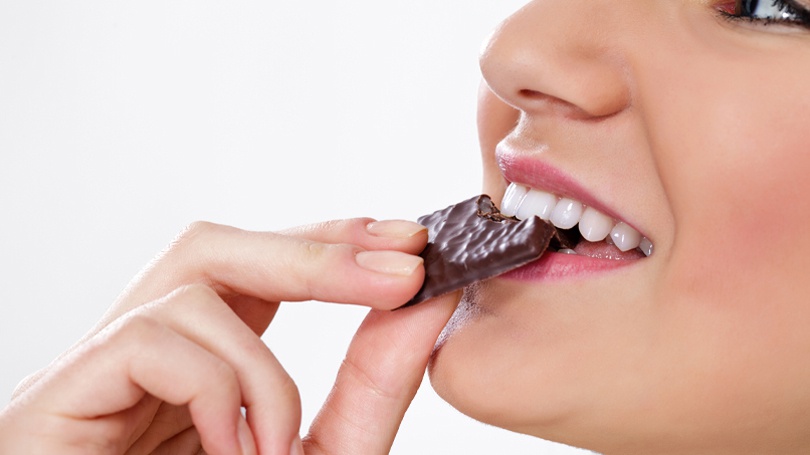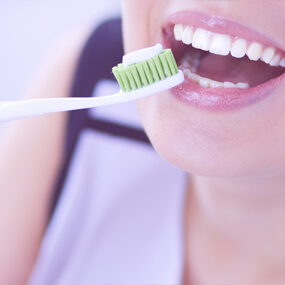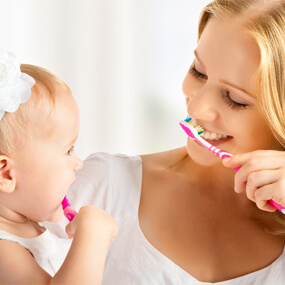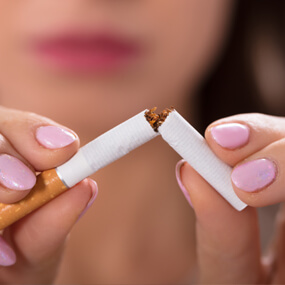31 Lifestyle Choices That Are Terrible for Your Mouth

Proper oral care begins with regular flossing and brushing, but even if you are consistent with your oral hygiene, you can undermine your oral health with poor lifestyle choices. These bad habits range from the beverages you drink to over-whitening as you strive for your perfect smile. Let us consider bad habits that can really wreck your teeth and, when applicable, what the healthier alternatives are.
- Irregular and Improper Oral Care – Surveys show that most people think they do a good job of brushing and flossing but actually may not. The American Dental Association (ADA) recommends brushing twice a day with fluoride toothpaste and flossing once a day. You should brush for at least two minutes. You should ensure that you brush each tooth completely, and you should brush your tongue or use a tongue scraper to get rid of all the bacteria harbored there as well.
- Brushing Too Hard – Many people have the impulse to scrub their teeth, but this habit is harmful. Not only do you not need that much force to remove plaque, but you can wear down your tooth enamel and even irritate your gums. You should also be careful not to use a toothbrush with bristles that are too hard.
- Biting Your Nails – Onychophagy is a compulsive habit and what is known as a parafunctional activity. People with this habit are often triggered by stress, excitement, and even boredom. Nail biting is often considered in terms of the damage caused to your fingers, but it harms your mouth too. Your jaw is often forced into a bad position for extended periods. There is a great deal of bacteria on your fingertips that can get into your mouth, and you can wear your front teeth down and even crack and chip them.
- Chewing Ice – Chewing ice is a rather common habit, and many people do it not due to compulsion but simply because they enjoy it. While frozen water may seem rather harmless, the ADA warns that frozen cubes can chip and even crack teeth. It can also irritate the soft tissues in the tooth leading to toothaches, and frequent chewing on ice can wear down your tooth enamel over time.
- Using Your Teeth as a Tool – A common bad habit is to use your teeth in order to rip opening packages or loosen stubborn bottle caps, but using your teeth in this manner is among the most common causes of broken teeth. Not only can it harm your teeth, but you can also gash your gums, injure your jaw and even swallow or choke on a foreign object.
- Over-Whitening and Using Over-the-Counter Whiteners – Whitening is among the most popular cosmetic dental treatments and an excellent way to overcome discoloration and beautify a smile. But it should be done under the supervision of your dentist! Certain OTC products may not be appropriate for you, and whitening too often can break down your enamel.
- Grinding Your Teeth – Bruxism is a condition in which people excessively clench their jaws and grind their teeth. Sleep bruxism can be particularly devastating because it occurs while sleeping, so the afflicted person is often unaware. Bruxism can wear down teeth over time. It also puts undue strain on the jaw and can lead to temporomandibular joint dysfunction. The condition can also manifest a wide range of symptoms, including headaches, neck and shoulder pain, daytime drowsiness, and tooth pain.
- Participating in Contact Sports Without a Mouthguard – Any sport where there is the potential for contact exposes you to inherent risk when it comes to your teeth, gums, tongue, and so forth. Most governing bodies require them, but it is essential that you not only adhere to the rules but invest in a custom-fit guard that provides you the best possible protection.
- Drinking Too Much Coffee – This one may make you cringe because if you are like many adults, coffee is your fuel. It helps start your engine in the morning and keeps you going throughout the day. The problem, however, is that coffee stains your teeth due to its deep, rich color and high acid content. The good news is that such stains are easily corrected with in-office teeth whitening, and in the meantime, you can limit the discoloration by drinking plenty of water, chewing sugar-free gum, and otherwise avoiding dry mouth.
- Breathing Through Your Mouth – Breathing through your mouth may be necessary during a tough workout or while you have a bad cold, but mouth breathing as a habit is quite bad for you. It dries out your mouth, which makes you more prone to bad breath, cavities, and gum disease. It also puts the jaw in a poor position, which can lead to jaw discomfort, bruxism, and a bad bite, and it can even cause hoarseness that harshens your voice.
- Using Tobacco Products – Beyond the obvious health risks associated with cigarettes and other tobacco products, tobacco use can be devastating to your teeth and gums. Tobacco use makes you much more prone to gum disease and tooth decay, and it contracts blood vessels in a way that often hides early symptoms.
- Wearing an Oral Piercing – Tongue, lip, and other oral piercings are currently fashionable, but they also present considerable risks to your oral health. A recent study in a prominent dental journal found that around 50 percent of people who wear an oral piercing for four years will experience dental damage within that period. Not only can piercings damage teeth and gums, but they harbor bacteria that make you more prone to oral infections.
- Chewing on Foreign Objects – If you like to chew on things, you are not alone. It is quite common to chew on toothpicks, pens, pencils, and a wide range of other foreign objects. It may seem harmless, but it is not. In fact, it is among the leading causes of dental emergencies. Switch to sugar-free gum instead. It promotes saliva for better breath and oral health, and a product with xylitol, for instance, can even help fight plaque.
- Frequent Snacking – There is a health trend toward eating less often, and these benefits extend to your oral health as well. Snacking produces less saliva than when eating a meal. Food particles hang around longer, and since you are often snacking, your teeth are under almost constant attack. When you do snack, opt for mouth-healthy foods, and rinse vigorously with water when you are finished.
- Binge Eating – Binge eating is not good for your health either, and it can be particularly bad for your teeth and gums when your diet choices are loaded with sugars and acids. The combination of binging and purging is particularly problematic since the acids in the vomit are strong and will erode your tooth enamel and eventually lead to tooth decay.
- Eating Potato Chips – Some snacks are worse than others. Chips are a great example of a terrible snacking option. Chewed chips break down into a gummy paste that gets stuck on, between, and behind your teeth. The starch breaks down into acid and can attack your teeth for 20 minutes or longer after you have finished eating. Limit your chip intake, and when you do treat yourself, rinse and chew sugar-free gum afterward.
- Sucking on Candies and Cough Drops – Suckers are terrible for your teeth, and most cough drops and throat lozenges are just candies with some medicinal qualities mixed in. Avoid hard candies altogether since they wear tooth enamel and help to form plaque, and when you need a throat lozenge, opt for a sugar-free option.
- Chewing Gummies – Gummy candies are even worse. Gummies are tantamount to taking everything that is wrong with hard candies and potato chips and mixing them up into one big dental disaster. These issues are often further compounded by all the acids introduced to achieve sour and other popular flavors.
- Drinking Carbonated Soft Drinks – Whether you call it soda, pop, or something else altogether, drinking it is bad for your teeth, and that includes sparkling water. Be mindful that while all that sugar is terrible for you, diet sodas can actually be worse for you due to all the acids introduced in order to enhance the sugar-free flavors.
- Staying Hydrated With Sports Drinks – Regular sports drinks are often as high in sugars as sodas are, and the sugar-free options often have the same problem as diet sodas in that they are loaded with acids. There is some evidence that sports drinks can help you hydrate faster and more effectively in certain scenarios, so you may opt for a sports drink during an intense workout. However, you should avoid them as a regular drink and during less intense activities.
- Drinking Fruit Juices – Some doctors describe orange juice as the result of taking out practically everything that is healthy about an orange. Fruit juices are certainly loaded with vitamins and antioxidants, but they may not be the best way to get those nutrients since they are also loaded with sugars and acids.
- Red Wine – Red wine is delicious. It is also loaded with acids that wear down your teeth enamel. This effect is often made worse because wine drinkers tend to move the liquid around their mouths and hold it while they breathe. This lets you enjoy the taste structures, the various flavors, and the different aroma levels, but it is also an intense assault on your teeth that causes discoloration and eventually cavities.
- White Wine – If your plan is to focus on white wine as a healthier alternative for your mouth, it is not a bad plan. White wine is certainly less intense in terms of discoloration and acids, but it still has a relatively acidic pH level. Enjoying cheese with your wine is a complementary option that also helps neutralize acids.
- Bottles in Baby Cribs – Most dental professionals agree that bottles and pacifiers should be eliminated as soon as possible. Bottles in the crib are a particular cause for concern because the overnight exposure to milk and juices can make the baby teeth much more prone to tooth decay.
- Irregular Dentist Visits – A prevalent but particularly bad habit among young and middle-aged adults is to see a dentist as a reactive rather than proactive measure. The preventative care and early diagnoses your dentist can provide can help you avoid needless discomfort as well as unnecessary expenses.
- Enjoying Kombucha – Kombucha is a fermented mushroom tea that is trending in the West due to the gut health and other immune system benefits it may provide. On the downside, kombucha is quite acidic in order to inhibit bacterial growth, and overindulgence may certainly damage your tooth enamel over time.
- Munching on Popcorn – Popcorn is a snack that is synonymous with going to the movies and has near-universal appeal. Depending on how it is prepared, it is also regarded as a very healthy snack that provides digestive benefits. Unfortunately, popcorn can be quite bad for the teeth. It is not uncommon for unpopped kernels to chip teeth, and shells that get stuck between the teeth can irritate and even inflame.
- Drinking Lemon Water – Lemon water is very popular and even served at most restaurants because lemons make healthy hydration more exciting and enjoyable. But lemon is highly acidic and attacks the outer layer of your teeth, which can lead to yellowing, tooth decay, and otherwise weak teeth.
- Taking Apple Cider Vinegar as a Supplement – Apple cider vinegar is a trendy diet supplement because evidence shows it assists with digestion and helps to reduce blood sugar levels and modulate insulin sensitivity. The concern is that this vinegar is highly acidic. It should be used in moderation, and care should be taken to avoid the teeth.
- Chewing Vitamins – What could be wrong with taking a vitamin? Chewable vitamins are intended to make it easier for children as well as adults who experience difficulty swallowing. But chewable vitamins are gummy and even sugary and can stick to your teeth and between them. You are much better off seeking a swallowed vitamin that has a pill size small enough to go down without any trouble.
- Dried Fruit – Many fresh fruits are great for your teeth, but this is rarely the case when it comes to dried fruit. While these snacks can be nutritious, they are essentially gummy candies that stick to the teeth and get trapped between them. If you do treat yourself, take great care to clean your teeth afterward.
Tweak Your Lifestyle for a Healthier Mouth
Practically everyone has some unfortunate habits that are not ideal for their health, and most just need a tweak here and there rather than big changes. In addition to a well-balanced diet, drinking plenty of water, and brushing and flossing on a daily basis, you need to see your dentist twice a year! A routine checkup and professional cleaning are essential to great oral health. You will also have the opportunity to discuss your habits with Jeffrey D. Clark, DDS, and the changes you can make toward a healthier smile. Call Scottsdale Cosmetic Dentistry Excellence at 480 585 1853 to schedule your appointment.




